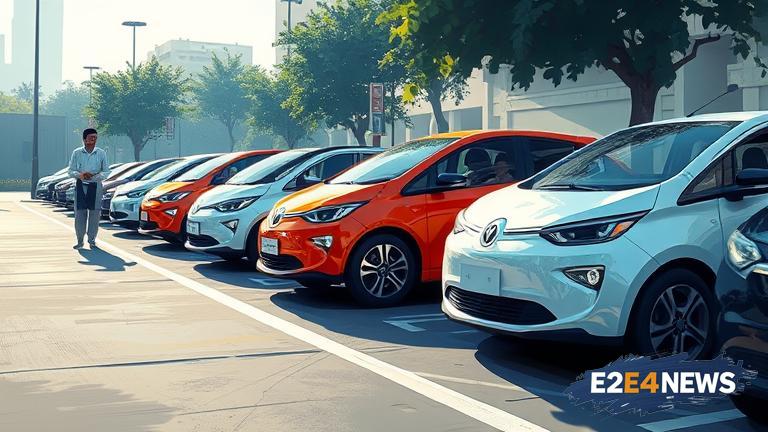The Indian government has announced a comprehensive plan to promote the adoption of electric vehicles (EVs) in the country. The plan includes a range of incentives and initiatives to encourage the use of EVs, including tax exemptions, subsidies, and investment in charging infrastructure. The government aims to have at least 30% of new vehicle sales be electric by 2030. To achieve this goal, the government will provide subsidies to manufacturers and buyers of EVs, as well as invest in the development of charging infrastructure. The plan also includes measures to promote the use of EVs in public transportation, such as buses and taxis. The government will also encourage the use of EVs in ride-hailing services, such as Ola and Uber. Additionally, the plan includes initiatives to promote the use of EVs in rural areas, where access to charging infrastructure may be limited. The government will also provide training and education programs to promote the adoption of EVs among consumers. The plan is expected to have a significant impact on the environment, as EVs produce zero tailpipe emissions and can help reduce air pollution in urban areas. The government has also announced plans to develop a network of charging stations along highways and in urban areas. The plan is part of the government’s broader strategy to reduce the country’s dependence on fossil fuels and promote sustainable development. The government has set a target of having at least 50% of new vehicle sales be electric by 2040. The plan has been welcomed by the automotive industry, which sees significant opportunities for growth in the EV sector. However, some experts have raised concerns about the lack of charging infrastructure in rural areas and the need for more investment in this area. The government has also announced plans to develop a national EV policy, which will provide a framework for the development of the EV sector. The policy will include measures to promote the use of EVs, as well as regulations to ensure safety and quality standards. The government has also announced plans to invest in research and development of new EV technologies, such as battery technology and charging systems. The plan is expected to create new job opportunities in the EV sector, as well as stimulate economic growth. The government has also announced plans to promote the use of EVs in the public sector, such as in government fleets and public transportation systems. The plan is part of the government’s broader strategy to promote sustainable development and reduce the country’s carbon footprint. The government has set a target of reducing greenhouse gas emissions by 33% by 2030, and the promotion of EVs is seen as a key part of this strategy. The plan has been welcomed by environmental groups, which see the promotion of EVs as a key step towards reducing air pollution and promoting sustainable development. Overall, the plan is expected to have a significant impact on the environment and the economy, and is seen as a key part of the government’s strategy to promote sustainable development.
